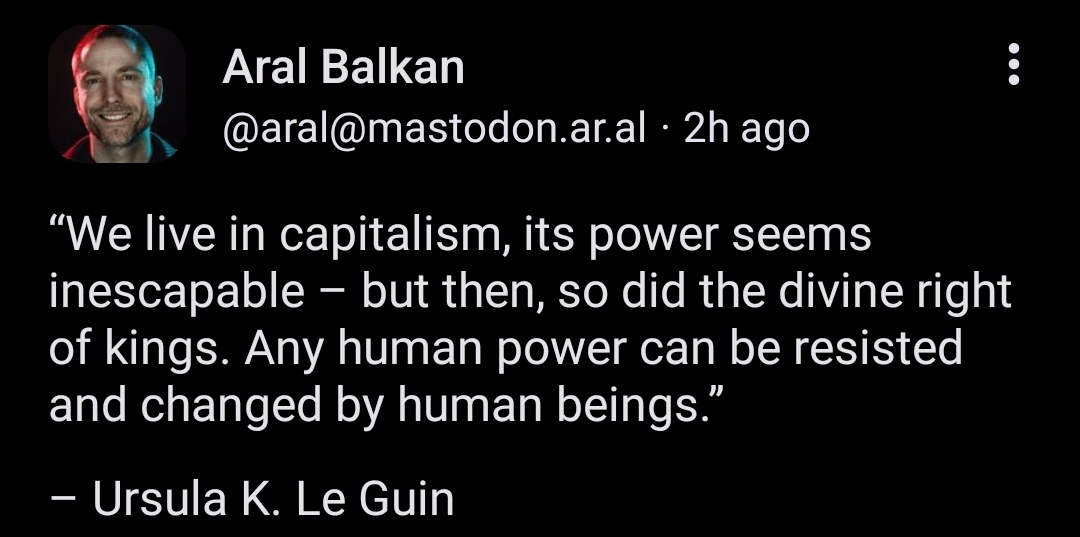this post was submitted on 04 Jan 2024
809 points (96.5% liked)
People Twitter
6875 readers
669 users here now
People tweeting stuff. We allow tweets from anyone.
RULES:
- Mark NSFW content.
- No doxxing people.
- Must be a pic of the tweet or similar. No direct links to the tweet.
- No bullying or international politcs
- Be excellent to each other.
- Provide an archived link to the tweet (or similar) being shown if it's a major figure or a politician.
founded 2 years ago
MODERATORS
you are viewing a single comment's thread
view the rest of the comments
view the rest of the comments

Last thing i read from Cory was "little brother," a YA book about democratically opposing totalitarian regimes. I was a bit out of the target market, but it read well and was actually a real guide about how to do the above. Basically a techno anarchist cookbook embedded in a novel.
It was also very much a specific moment in time, where it was possible to be optimistic that the Web 2.0 explosion of decentralized access to tools for users self-publishing and distributing content to millions of readers/consumers would democratize the exchange of ideas.
And then, over the decade and a half since, the old gatekeepers were replaced with new gatekeepers, where the wild west of the unrestricted web turned into a cesspool of spam/scams and clickbait, and people organized into walled gardens controlled by corporate interests. The internet as a whole is still somewhat decentralized, but it's getting harder and harder to meaningfully participate in public dialogue without first pledging fealty (that is, signing away rights in some Terms of Service) to some digital lord in this new feudal landscape.
That's also to say nothing of the power of corporate or governmental forces to influence the discussion on those platforms, through old and new propaganda techniques that leverage existing social and technical feedback loops.